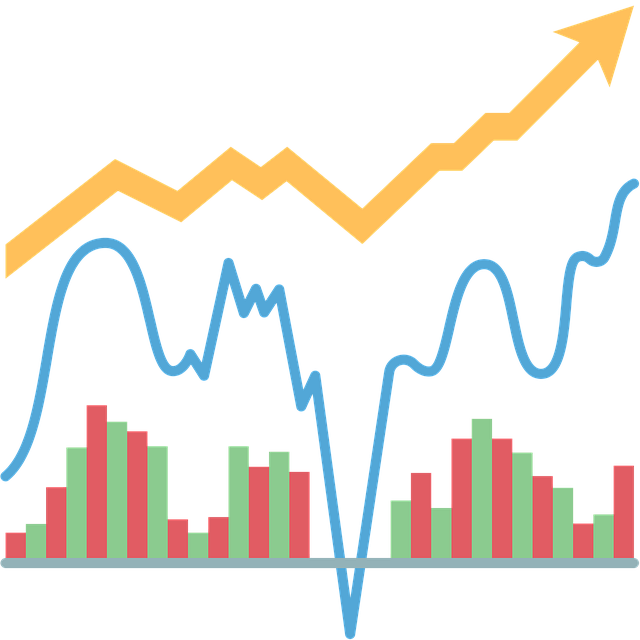Spread betting and stock trading are two similar yet distinct concepts in the world of finance. It can be difficult to understand the differences between them, so let’s dive into what makes each unique.
In this article, we will explore how spread betting and stock trading differ, and whether or not they can be considered equivalent. We’ll look at the key features of each type of investment, as well as their respective risks and rewards. By the end, you’ll have a better understanding of which is right for you.
Overview Of Spread Betting
 Spread betting is a popular form of financial trading that allows investors to speculate on the price movement of an asset without owning it. It is different from stock trading in that spread bets take place directly between two parties, rather than through a stock exchange. Spread betting also does not involve the physical purchase or sale of an asset; instead, profits and losses are determined by the price movement of the underlying asset.
Spread betting is a popular form of financial trading that allows investors to speculate on the price movement of an asset without owning it. It is different from stock trading in that spread bets take place directly between two parties, rather than through a stock exchange. Spread betting also does not involve the physical purchase or sale of an asset; instead, profits and losses are determined by the price movement of the underlying asset.
Unlike stock trading, spread betting offers greater flexibility and can be used to create leveraged positions, allowing investors to gain greater exposure to an underlying asset with less capital than would be required for traditional equity investments. In addition, there are no commissions or other associated fees with spread betting, making it a cost-effective way for traders to access markets such as foreign exchange and commodities.
Overview Of Stock Trading
The world of stock trading can be a lucrative and exciting one, but it’s also rife with potential pitfalls. To get the most out of stock trading, understanding how it works is key. Stock trades involve the buying and selling of shares in publicly-traded companies and other investments. The goal is to buy low and sell high—or to buy when prices are expected to rise, then sell for a profit. Traders may use strategies based on technical analysis or fundamental analysis to inform their decisions. For example, technical analysis looks at patterns in the share price itself, while fundamental analysis takes into account external factors such as company news or macroeconomic trends. Trading often involves taking risks, including leveraging and shorting stocks. It’s important that traders understand these risks before getting started in order to make informed choices when honing their strategies.
Advantages And Disadvantages Of Spread Betting
Spread betting and stock trading may seem similar on the surface, but there are some key differences. Spread betting allows traders to speculate on the price movement of a wide range of markets, without actually owning the underlying asset. This can enable traders to benefit from both rising and falling prices, giving them greater flexibility when it comes to their investments. On the other hand, stock trading involves ownership of stocks or shares in a company that are bought and sold through a broker. While stocks can also be traded in a similar way to spread bets, they are subject to capital gains tax and stamp duty which spread bets are not.
The advantages of spread betting include being able to trade with leverage, meaning that traders can take larger positions with smaller amounts of capital than would be possible with traditional stock trading. Additionally, no physical delivery is required as is with buying stocks so traders don’t need to worry about storage or transfer costs. However, while leverage can produce great returns it can also work against you if the market moves against your position as you may incur losses greater than your initial deposit. Furthermore, spread betting profits may be liable for income tax depending on your country’s laws so it’s important to check before investing.
Spread betting certainly has its pros and cons but it can offer investors an additional way to diversify their portfolios and hedge against potential losses from other investments. With careful research and planning any investor could find success in this type of trading.
Advantages And Disadvantages Of Stock Trading
Stock trading can be an attractive investment option for those looking to grow their money. It allows investors to buy and sell shares in publicly traded companies, providing them with the opportunity to make a return on their investment. However, it also carries some risks that should be taken into consideration before investing. Stock trading can involve significant financial risk depending on the stock’s volatility, and there are no guarantees of profits or returns. Furthermore, if the market takes an unexpected turn, investors may find themselves facing crippling losses. It is important for investors to research stocks thoroughly before investing and to manage their investments closely to mitigate risks associated with stock trading.
Comparing Spread Betting And Stock Trading
Spread betting and stock trading are two different types of investment strategies. Spread betting involves the investor predicting whether a financial market will rise or fall in value over a certain period of time. The investor then places a bet based on their prediction, with the potential to make or lose money depending on the outcome. On the other hand, stock trading is when an investor buys and sells shares in publicly traded companies to make a profit.
The biggest advantage of spread betting is that it offers leveraged exposure to markets which can potentially lead to greater gains than stock trading, as well as allowing traders to speculate on price movements without actually owning the underlying asset. However, it also carries greater risk due to its highly leveraged nature and can result in substantial losses if not managed carefully. Stock trading, on the other hand, requires less capital investment but carries more risk than spread betting due to its direct connection with the underlying asset and its relative illiquidity compared to financial derivatives like spread bets.
In comparison, both offer opportunities for investors to make profits but require different approaches. Spread betting enables investors to take advantage of leverage while reducing exposure, whereas stock trading provides access to underlying assets with a higher risk profile. Ultimately, it is up to each individual investor to decide which approach best suits their needs and goals.
What Qualifications Do I Need To Start Spread Betting Or Stock Trading?
To start spread betting or stock trading you will need to meet certain qualifications. Depending on where you are located, these qualifications may vary. Generally speaking, you should have a good understanding of the markets and financial instruments involved in stock trading and spread betting. You will also need to be over the age of 18, have a valid government-issued ID, and be able to provide proof of address. It is also advisable to have a basic understanding of economics and financial theory to help reduce risks associated with investing in the markets.
How Much Money Do I Need To Start Spread Betting Or Stock Trading?
Starting out in spread betting or stock trading can be an exciting yet daunting experience. The amount of money you’ll need to begin will depend on the broker and the type of trading you’re doing. Generally, it’s recommended to have around $500-1000 to start with, as this is enough to cover any potential losses while still leaving room for profit. Keep in mind that some brokers may require minimum deposits in order to open an account. It’s worth researching different brokers and their requirements before making any decisions.
What Are The Risks Associated With Spread Betting Or Stock Trading?
Spread betting and stock trading come with a certain level of risk. Spread betting involves taking a bet on the price movements of an asset, where you can both buy and sell that asset. The potential for profit is unlimited, but so is the potential for loss. When it comes to stock trading, you are essentially buying shares in a company, meaning that you could make money if the value of those shares rises. However, there is also the risk that the share price could go down, resulting in a financial loss. It’s important to do your research and understand the risks associated with each type of investment before making any decisions.
How Do I Develop A Successful Spread Betting Or Stock Trading Strategy?
Developing a successful spread betting or stock trading strategy requires considerable research and dedication. To begin, you’ll need to develop an understanding of the markets, familiarize yourself with the different types of bets and trades, and identify market trends. It’s also important to understand the risks associated with each type of bet or trade in order to set sensible limits and avoid taking on too much risk. Additionally, it’s wise to establish a trading plan that outlines when you will enter and exit the market, as well as how much money you are willing to invest in each transaction. Lastly, it is essential to monitor your investments regularly in order to assess their performance and make any necessary adjustments. With consistent practice and careful consideration of these details, you can become an effective spread bettor or stock trader.
What Resources Are Available To Help Me Learn More About Spread Betting Or Stock Trading?
Learning about spread betting and stock trading can be a daunting task. Fortunately, there are plenty of resources available to help you get started. From online courses and webinars to books and podcasts, there’s something for everyone. You can also find helpful articles on financial websites that explain the basics of each strategy, including how to develop a successful trading strategy.
I’ve learned that there are some similarities between spread betting and stock trading, but also many differences. It’s important to understand the qualifications required, the risks involved and how to create a successful strategy before getting started. With the right knowledge and resources, it is possible to understand these financial markets and pursue either of these options. I’m encouraged by what I’ve learned so far, and am looking forward to furthering my research into both spread betting and stock trading. With determination and dedication, I’m confident that I can develop the skills needed to succeed in either of these financial markets.








